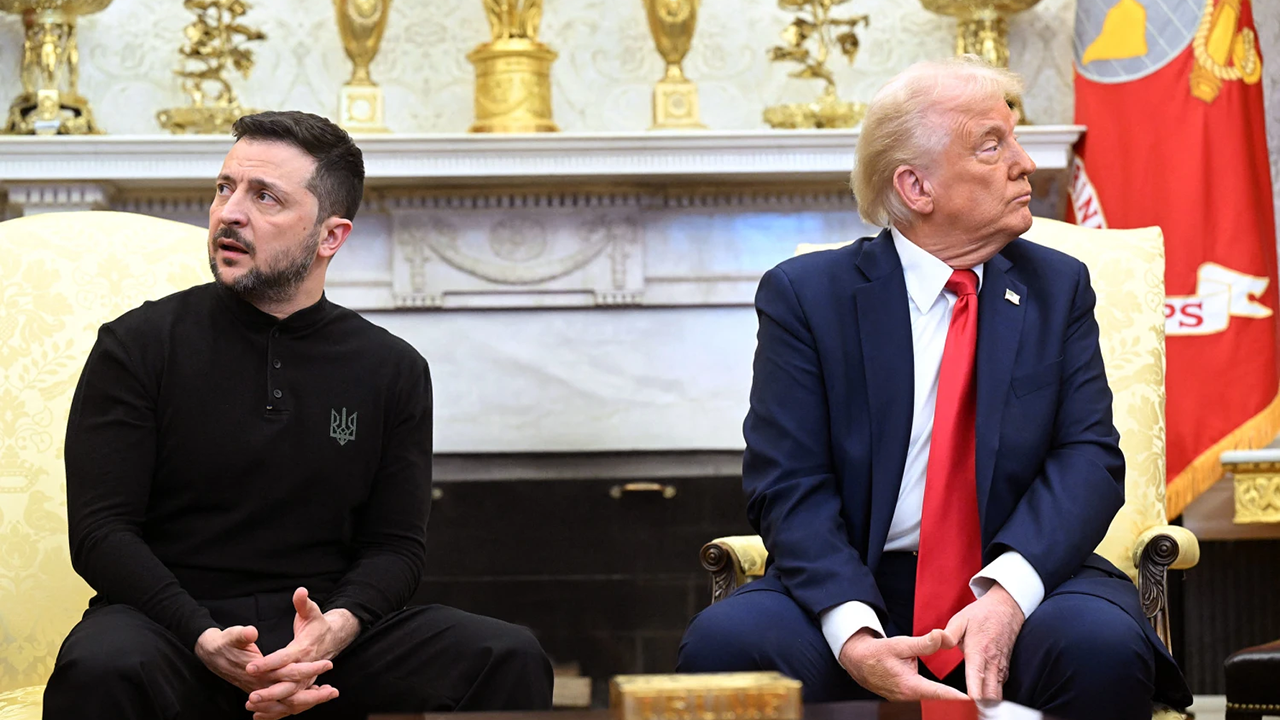World
‘We never had so many drugs smuggled or produced in Europe’ – report
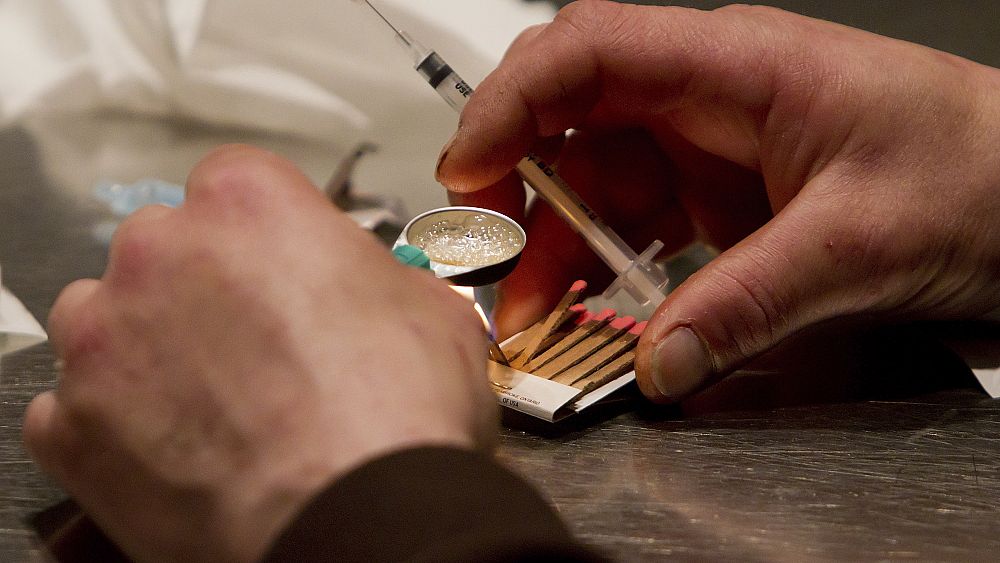
The annual study released by the European Monitoring Centre for Drugs and Drug Addiction (EMCDDA) warned that the use of illegal substances is a concern to the health of people on the continent, as well as its security.
Drugs and the use of illicit substances are having an increasingly negative impact on nearly all aspects of European life, according to the EU’s drug agency.
In its annual report released on Friday, the EMCDDA said that drug use is seen “almost everywhere in our society”, with most people being either directly or indirectly affected by it or the difficulties associated with it.
Availability of many different illicit substances remains stubbornly high too and with new ones being regularly discovered by the agency, it says that the problem is growing more complex and difficult to handle.
In an interview with Euronews, Alexis Goosdeel, the director of the EMCDDA, said that the developments are concerning.
“What the report is showing and presenting today is a confirmation of the trend that we observe in the last two or three years, which is that drugs are everywhere. We never had so many drugs being smuggled through Europe or produced in Europe,” he said.
“Drugs can be everything. Everything can be the object of addictive behaviour and then everyone can be confronted either personally or indirectly, to any kind of addictive behaviour or among their relatives or people they know.
“But also everyone can be much more than before confronted with the consequences of drug-related violence and here we talk about something that until ten years ago when we spoke about drug-related violence, we spoke about Central America. Today, we speak about Europe.”
Cannabis and cocaine most used illegal drugs
The European Drug Report 2023, which covers the year 2021, confirms that cannabis remains Europe’s most commonly used illegal drug, adding that the situation is becoming increasingly difficult to manage due to new forms and uses of it, as well as a wide range of policies throughout EU countries.
In 2021, 816 tonnes of cannabis resin and 256 tonnes of herbal cannabis were seized by EU authorities – their highest level in a decade.
At the same time, there was an historically high availability of cocaine in Europe, with a record 303 tonnes of cocaine confiscated by EU authorities.
The drug was also related to around a fifth of deaths by overdose in 2021 and is even suggested to be under-reported.
“We can be fairly sure this is an underestimate because in some cases, the use or abuse of cocaine also mixed with other substances can have an effect as a heart attack,” Goosdeel told Euronews.
“And therefore the heart attacks may not be automatically identified as related to cocaine use.”
Access to help must be improved
Despite Europe’s widespread drug use, help for addicts remains relatively low in comparison.
The report notes that although the situation has improved over the years, there is still much more work to done.
Drug consumption rooms (DCRs), where addicts can go to a safe space to use substances, are becoming more commonplace, helping to get people off the street, as well as providing a sterile environment to use.
Bruno Valkeneers, a communication manager at Gate – a DCR in Brussels – told Euronews that the use of crack cocaine is on the rise in the Belgian capital.
“What is very impressive is the use of crack. What we see also on the market is new dealers selling stones of crack. It was not like that a few years ago in Belgium, mainly culturally, if I can say like that, the users made their own crack by themselves,” he said.
“But for five years we see a new scene of traffic with people who sell immediately stones of crack.”
Corruption in Europe ‘underestimated’
Violence and corruption are also closely linked to the drug trade and use of them in the report, which states that levels are increasing.
The drugs agency director said that this threatens European security and stability.
“Corruption as a whole is a huge risk for democracy and for the rule of law. It is not only associated to drugs. Today we see it more in the context of drug trafficking, in particular cocaine,” he said.
“But organised criminal groups are spread and they are very well implemented and organised. The corruption is not only a corruption associated to drugs, it’s more visible today because of seizures, because of the changes on the cocaine market.
He also said that the problem is sometimes overlooked.
“But it’s a much more general problem and some studies and some international programmes showed that the corruption in Europe sometimes maybe was underestimated.”
The report adds that new, stronger substances are being discovered regularly, making Europe’s drug problem more and more complex.
Goodsdeel warns that the issue should not be brushed aside.
“The biggest risk would be to underestimate the problem,” he said.
“But there is an increased awareness that we have a problem, that it is everywhere. It’s not yet widespread in terms of use, but we need to increase our preparedness.”

World
Gold surges past $3,100 as US tariffs, uncertainty propel safe-haven flows

World
Trump threatens to bomb Iran unless they end nuclear weapons program and begin talks on new deal
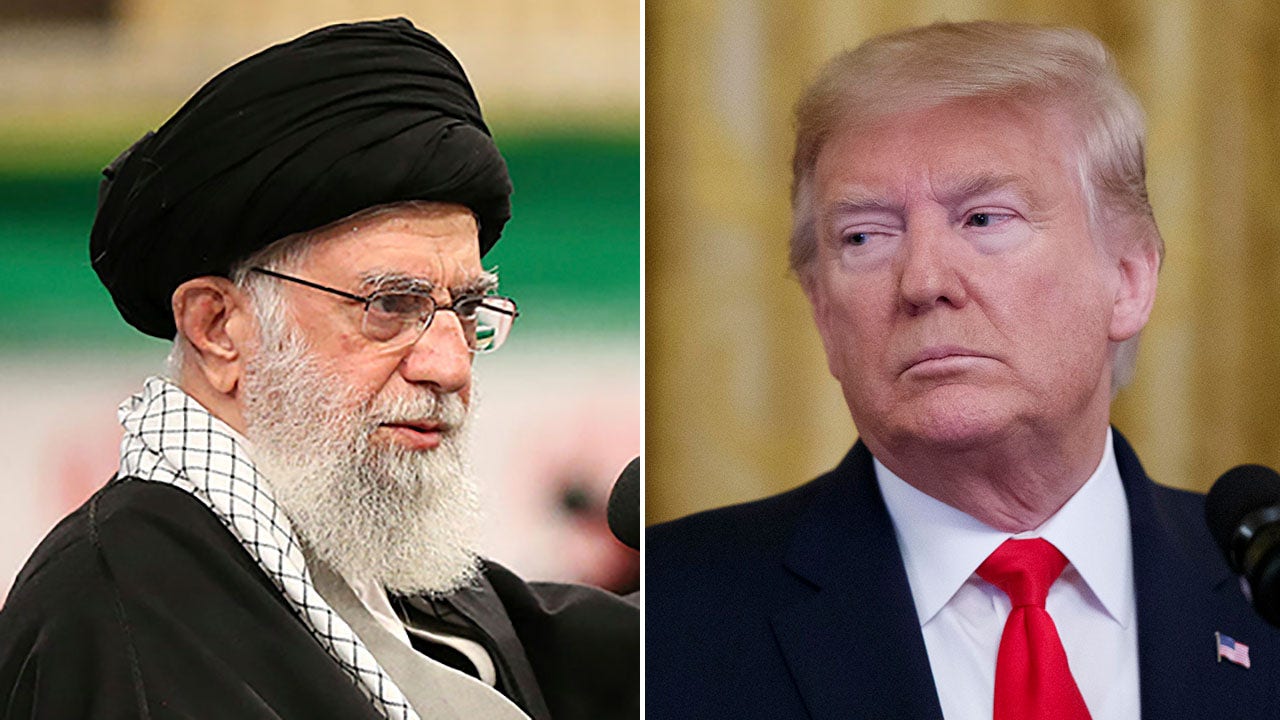
JERUSALEM—President Donald Trump’s overtures via a letter to the Islamic Republic of Iran’s supreme leader, Ali Khamenei, to jump-start talks on dismantling Tehran’s illicit nuclear weapons program, were met with rejection by the theocratic state on Sunday, following Trump’s latest threat to the regime.
Trump told NBC on Saturday that “If they don’t make a deal, there will be bombing,” he said. “But there’s a chance that if they don’t make a deal, that I will do secondary tariffs on them like I did four years ago.”
Trump added the U.S. and officials from the Islamic Republic are “talking.”
Iran’s President Masoud Pezeshkian said on Sunday “We don’t avoid talks; it’s the breach of promises that has caused issues for us so far,” according to the Associated Press. He added, “They must prove that they can build trust.” The White House did not immediately respond to Iran’s rejection of the talks, the AP reported.
Pezeshkian still noted that in Iran’s response to the letter that indirect negotiations with the Trump administration were still possible.
WALTZ TELLS IRAN TO GIVE UP NUCLEAR PROGRAM OR ‘THERE WILL BE CONSEQUENCES’
Supreme Leader Ali Khamenei addresses the media during elections in Tehran, Iran, on May 10, 2024. (Fatemeh Bahrami/Anadolu via Getty Images)
The apparent return of Iran’s regime to its standard playbook of opaque indirect talks between the U.S. and Tehran’s rulers raises questions about whether Trump would greenlight military strikes to eradicate Iran’s vast nuclear weapons program.
After Iran launched two massive missile and drone attacks on Israel last year, Trump could also aid the Jewish state in knocking out Iran’s nuclear weapons apparatus.
Indirect talks between the U.S. and the world’s worst state-sponsor of terrorism, according to Democratic and Republican administrations, have not compelled Iran to abandon its pursuit of nuclear weapons.
Jason Brodsky, the policy director of United Against Nuclear Iran (UANI), told Fox News Digital that the Iranians “do not want to provide President Trump with a casus belli to strike Iran’s nuclear program. There may be indirect and non-public responses through various intermediaries. I think some Iranian officials perceive a fissure among President Trump’s national security team on Iran. This explains Iran’s foreign minister’s comment in recent days that President Trump’s letter to the supreme leader poses challenges as well as opportunities.”
TRUMP VINDICATED AS EXPLOSIVE REPORT CONFIRMS IRAN SUPERVISES HOUTHI ‘POLITICAL AND MILITARY AFFAIRS’

Iran’s first functioning nuclear power plant in Bushehr, Iran, on April 28, 2024. (Morteza Nikoubazl/NurPhoto via Getty Images)
Brodsky said, “These Iranian officials seek to bypass experienced hands like President Trump’s national security advisor and secretary of state, who have been demanding the dismantlement of Iran’s entire nuclear program in keeping with President Trump’s long-standing and rightful position on this issue, and cultivate individuals around President Trump who do not have experience with Iran or are considered non-traditional conservatives who would be more receptive to their entrees.”
Trump promised that “bad things” would happen to Iran if the regime does not come to the table for nuclear negotiations. “My big preference is that we work it out with Iran, but if we don’t work it out, bad things are gonna happen to Iran,” he said on Friday.
Iran is enriching uranium to 60%, just shy of the 90% weapons-grade. Experts say it could have a nuclear weapon within weeks if it were to take the final steps to building one. Fox News Digital reported in late March that Iran’s regime has enriched enough uranium to manufacture six nuclear weapons, according to a U.N. atomic agency report.
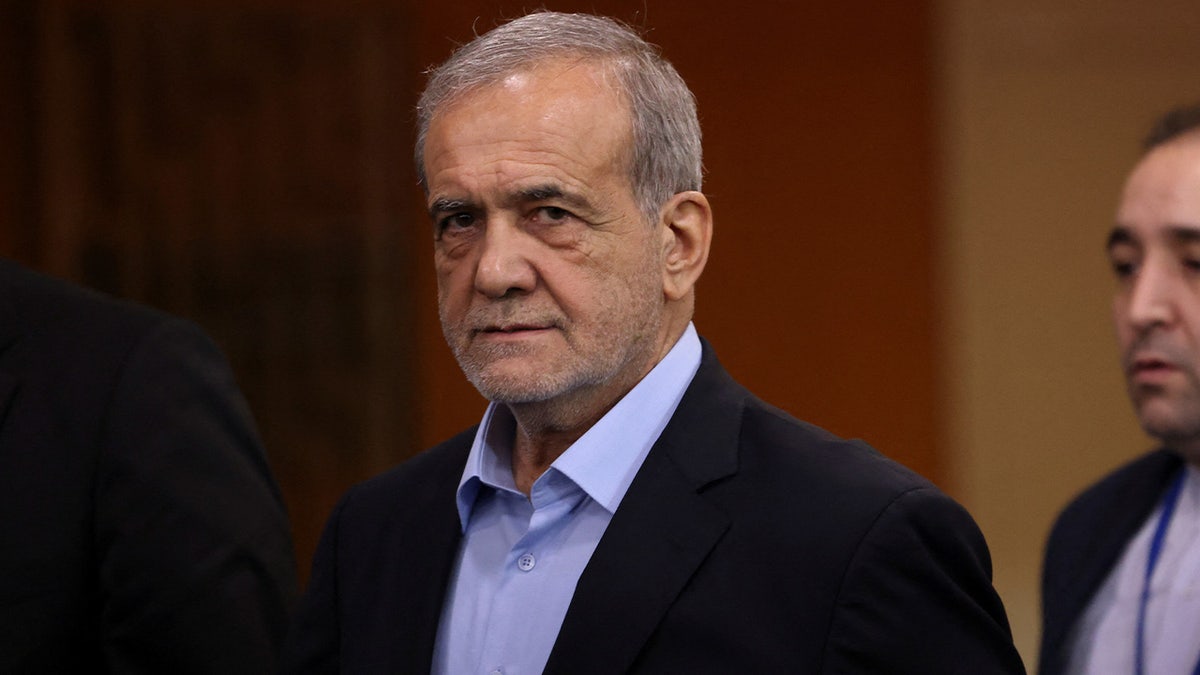
Iran’s President Masoud Pezeshkian at U.N. headquarters in New York, Sept. 24, 2024. (Reuters/Caitlin Ochs)
Alireza Nader, an Iranian-American expert on Iran, told Fox News Digital, “Khamenei may be signaling that he’s not interested in negotiations, but his regime desperately needs economic relief. Otherwise, another popular uprising against him could start. Khamenei doesn’t have the cards.”
There is widespread discontent among Iranians against the rule of 85-year-old Khamenei.
TRUMP REINSTATES ‘MAXIMUM PRESSURE’ CAMPAIGN AGAINST IRAN
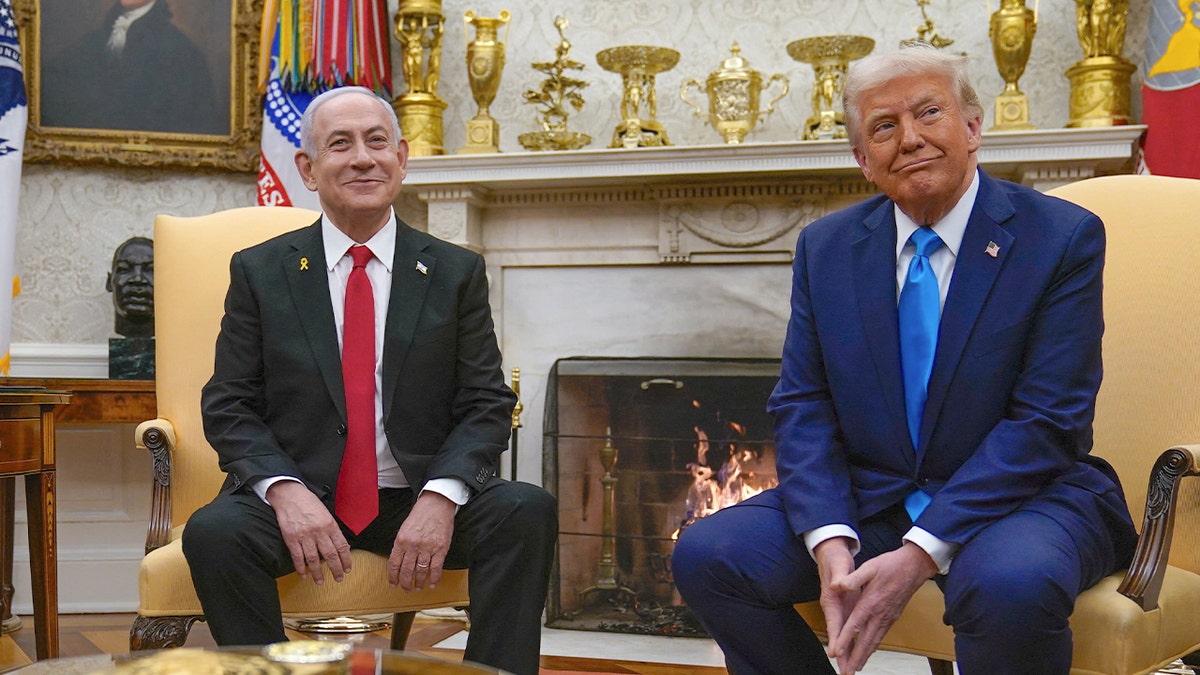
President Donald Trump and Israeli Prime Minister Benjamin Netanyahu meet at the White House, Feb. 4, 2025. (Reuters/Elizabeth Frantz)
Iran’s has upped the ante ever since Trump told FOX Business he sent a letter to Khamenei. Iran has disclosed video footage of its underground “missile city.”
Trump also told FOX Business, “I would rather negotiate a deal.”
He continued, “I’m not sure that everybody agrees with me, but we can make a deal that would be just as good as if you won militarily. But the time is happening now, the time is coming up.
“Something is going to happen one way or the other. I hope that Iran, and I’ve written them a letter, saying I hope you’re going to negotiate because if we have to go in militarily, it’s going to be a terrible thing for them.”
Brodsky said, “That means the Islamic Republic may dangle a JCPOA-like deal, with minor modifications from the previous 2015 agreement. Iranian media has been hyping such an arrangement.”
In 2018, Trump withdrew from the Obama-negotiated Joint Comprehensive Plan of Action deal because, he argued, that the agreement failed to ensure Iran would not build nuclear weapons and did not codify restrictions against Tehran’s missile program and sponsorship of Islamist terrorism.
IRAN’S LEADER WARNS US COULD RECEIVE ‘SEVERE SLAPS’ FOLLOWING TRUMP’S THREATS TO HOUTHIS

The Foundation for Defense of Democracies has analyzed where Iran’s nuclear infrastructure is located. (Image provided by the Foundation for Defense of Democracies (FDD) )
Brodsky said, “These Iranian officials believe they can lure the Trump administration into this arrangement and then President Trump will wave a magic wand and bring the entire Republican Party along with Democrats to support the deal and make it more politically durable than the 2015 JCPOA. This is all despite President Trump’s consistent and strong record in rejecting the JCPOA framework. It reflects desperation in Tehran and a desire to buy time with another failed diplomatic gambit. But it’s important to have eyes wide open here as to the games the Iranians will (and are already) playing.”
While Trump’s director of national intelligence, Tulsi Gabbard, testified on Tuesday before the Senate Intelligence Committee that the intelligence community “continues to assess that Iran is not building a nuclear weapon and Supreme Leader Khamanei has not authorized the nuclear weapons program he suspended in 2003,” she did note that Iran increased its enriched uranium stockpile.
In sharp contrast to U.S. intelligence since 2003, Fox News Digital has previously reported that European intelligence agencies believe Iran is working toward testing an atomic weapon, and sought illicit technology for its nuclear weapons program.
Counter-proliferation experts, like the prominent physicist and nuclear specialist David Albright, have told Fox News that European intelligence institutions use an updated definition of construction of weapons of mass destruction to assess Iran’s progress in contrast to America’s alleged obsolete definition.
CLICK HERE FOR THE FOX NEWS APP
Fox News Digital sent press queries to the U.S. State Department and the National Security Council.
Fox News Digital’s Morgan Phillips and the Associated Press and Reuters contributed to this report.
World
Trump insists he is ‘not joking’ about seeking a third term as president

Donald Trump hints at exploring paths to a third term as United States president despite constitutional limits.
US President Donald Trump has said he is “not joking” about seeking a third term in office, which is barred by the United States Constitution.
Speaking in a phone interview with NBC News on Sunday, Trump directly addressed speculation over a potential third term, saying, “No, I’m not joking. I’m not joking,” but added, “It is far too early to think about it.”
“There are methods which you could do it, as you know,” he said, without elaborating on potential legal or political avenues.
The US Constitution’s 22nd Amendment limits presidents to two four-year terms, whether consecutive or not.
The 22nd Amendment says that “no person shall be elected to the office of the president more than twice”.
Trump was asked in the NBC interview about a scenario where his running mate, Vice President JD Vance, could assume office before stepping aside to allow him to take over. Trump acknowledged the possibility, stating, “That’s one” approach.
“But there are others, too,” he added, without elaborating further.
‘We’re working on it’
Overturning the 22nd Amendment would require a two-thirds majority in both houses of Congress and ratification by three-quarters of the 50 US states.
Trump, who began his second, non-consecutive term in January, has repeatedly alluded to extending his time in office.
Some of his allies have also floated the idea of keeping him in power beyond 2028, while Trump himself has occasionally teased about the possibility, often in ways that taunt his political opponents.
If he were to pursue another term in the 2028 election, Trump, who was the oldest president to be inaugurated in the US in January 2025, would then be 82 years old.
The precedent of a two-term limit dates back to 1796, when George Washington voluntarily stepped down after two terms.
This tradition remained largely unchallenged for more than 140 years until Franklin D Roosevelt won a third term in 1940 amid the Great Depression and World War II. Roosevelt died months into his fourth term in 1945, prompting Congress to formalise term limits with the 22nd Amendment in 1951.
Longtime Trump adviser Steve Bannon suggested in a March 19 interview with NewsNation that Trump may seek re-election in 2028.
“We’re working on it,” Bannon said, adding that his team was exploring ways to reinterpret the definition of term limits to facilitate a third term.
-

 News1 week ago
News1 week agoHow a Major Democratic Law Firm Ended Up Bowing to Trump
-

 Education1 week ago
Education1 week agoICE Tells a Cornell Student Activist to Turn Himself In
-

 News1 week ago
News1 week agoWere the Kennedy Files a Bust? Not So Fast, Historians Say.
-
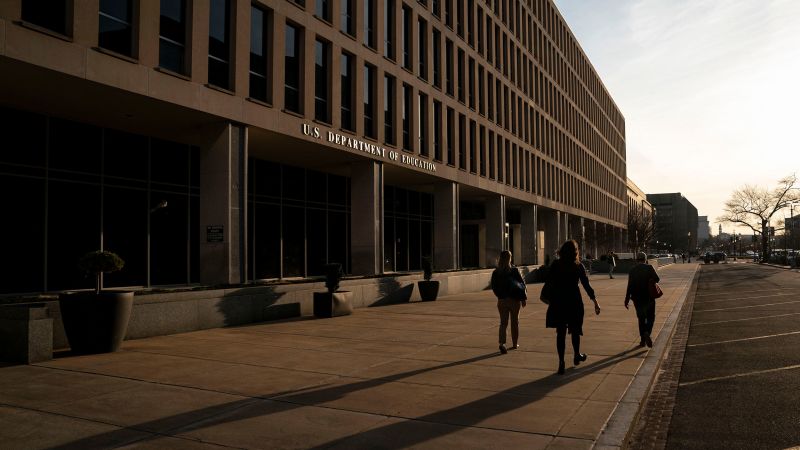
 News1 week ago
News1 week agoDismantling the Department of Education will strip resources from disabled children, parents and advocates say | CNN
-

 News6 days ago
News6 days agoWashington Bends to RFK Jr.’s ‘MAHA’ Agenda on Measles, Baby Formula and French Fries
-

 Politics1 week ago
Politics1 week agoEXCLUSIVE: Groundbreaking new prayer book designed for demographic most targeted for abortion
-

 News5 days ago
News5 days agoTrump Is Trying to Gain More Power Over Elections. Is His Effort Legal?
-

 Movie Reviews1 week ago
Movie Reviews1 week agoFilm Review: Rachel Zegler is the Best Part of an Otherwise Dull Remake of ‘Snow White’ – Awards Radar

















